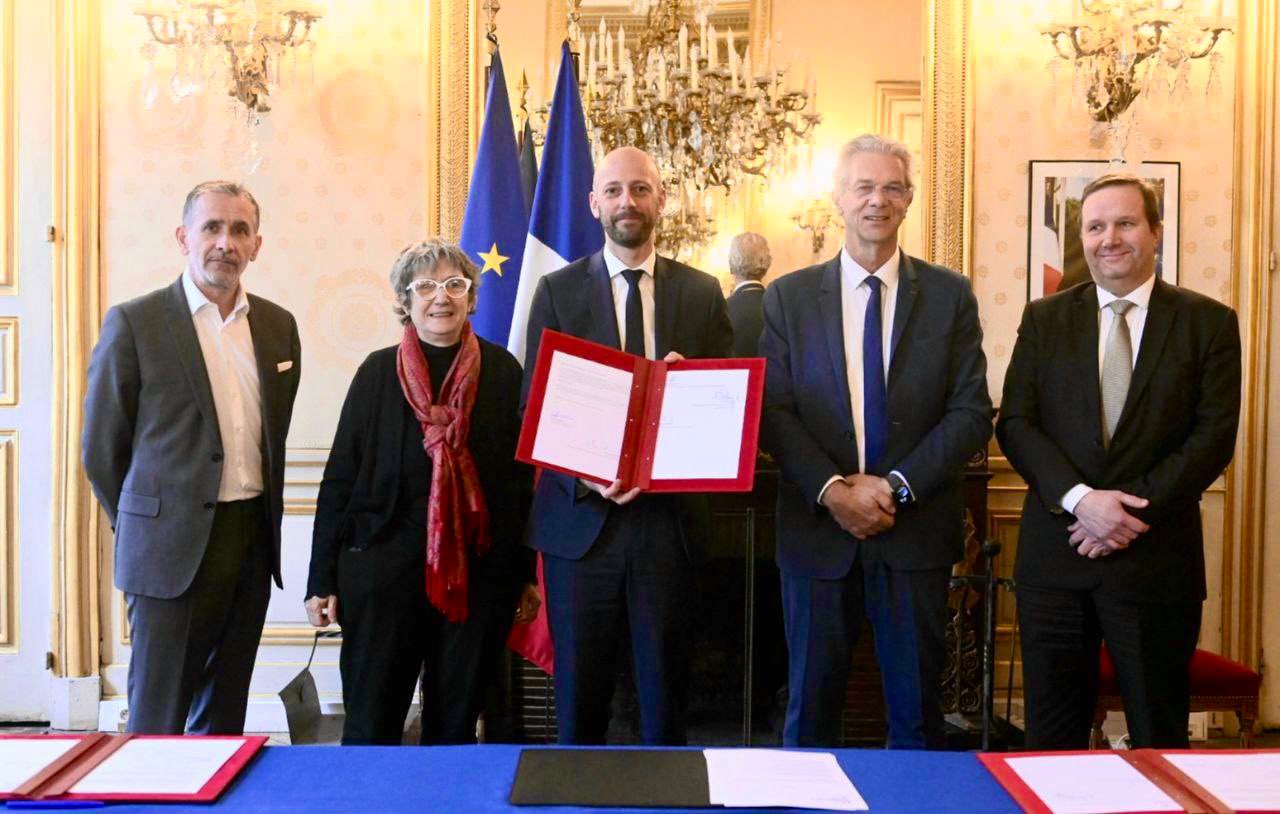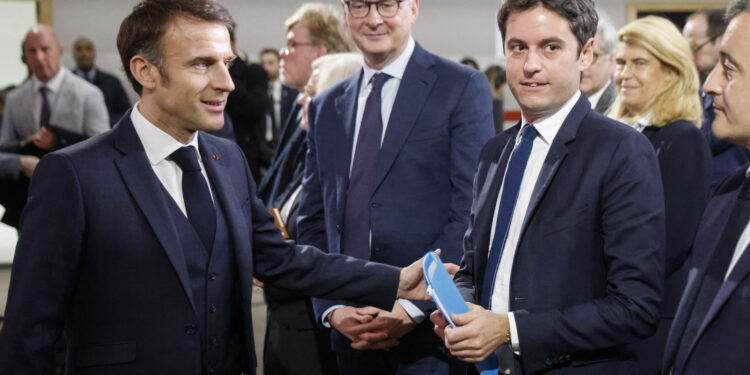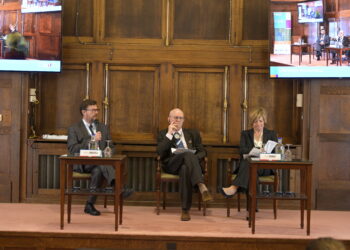Brussels – Respond to “climate deregulation” with “strength, perseverance, and determination”: with “ecological planning.” The words used by the French prime minister, Gabriel Attal, are the manifesto of the National Plan for Ecological Transformation that the republic’s government unveiled today (March 28) in Paris.
A roadmap that includes 15 commitments by French ministries to promote the green transition. Not surprisingly, the presentation event at the Muséum National d’Histoire Naturelle was attended by four other members of Attal’s cabinet: Stanislas Guerini, Minister of Public Functions, and colleagues Sylvie Retailleau (Higher Education and Research), Agnès Pannier-Runacher (Agriculture) and Thomas Cazenave (Public Accounts), as well as regional prefects, scientists, associations, and civil servant groups.
The long-announced plan for the state’s ecological transformation was released in January in the form of a memo amid the government reshuffle that brought Emmanuel Macron’s young protégé to the helm of the executive. The strategy, which Attal called “unique, pioneering, and never put in place by any industrialized country,” sets targets to be achieved by 2024 and 2027, the last year of Macron’s second term at the Elysée.
The government wants to reduce fuel consumption by 5 per cent in 2024 (compared to 2022) and 10 per cent by 2027. Between 2023 and 2024, it also hopes to reduce food waste by 10 per cent, a target that will be raised to 25 per cent by 2027. An interim reduction target of 10 per cent between 2022 and 2024 and 25 per cent by 2027 has also been set for energy consumption in some government buildings. France aims to reduce greenhouse gas emissions by 5 per cent annually until 2027. It’s a plan that puts Paris on track so that it will not be caught unprepared for the European Commission’s most important goal set for 2050, climate neutrality.
“The state has a special and eminent responsibility for the ecological transition,” the prime minister insisted, going on to announce that “starting tomorrow” the purchase of “more than 10 thousand water-saving devices” (rainwater tanks, aerators to regulate the flow of water from taps ) will be financed, thus predicting a saving of 3.7 million litres of water. Attal also spoke of installing “9 thousand charging points” for electric vehicles by the end of the term while pledging to replace 5 thousand endothermic-powered vehicles in the state fleet with electric vehicles annually.

Attal claimed the efforts already put in place by the republic to reduce energy consumption at home: the gas and electricity bills of the state’s housing stock, which includes 190,000 buildings, decreased by €150 million from 2022 to the present. The minister for public accounts, Thomas Cazenave, also announced that he would reduce the public housing stock.
“I want it to be a priority to talk to civil servants,” stressed Stanislas Guerini, minister of the Civil Service, who signed an agreement to introduce “tailored training for the three levels of the civil service: state, local, and hospital.” Guerini promised that by 2027, “all 5.7 million civil servants will have received training on the ecological transition.” Because training is “a prerequisite for action,” and if they are all trained, they will all be “agents of change.”
English version by the Translation Service of Withub


![[foto: Wikimedia Commons]](https://staging.eunews.it/wp-content/uploads/2024/03/GlobalWarming-350x250.png)





